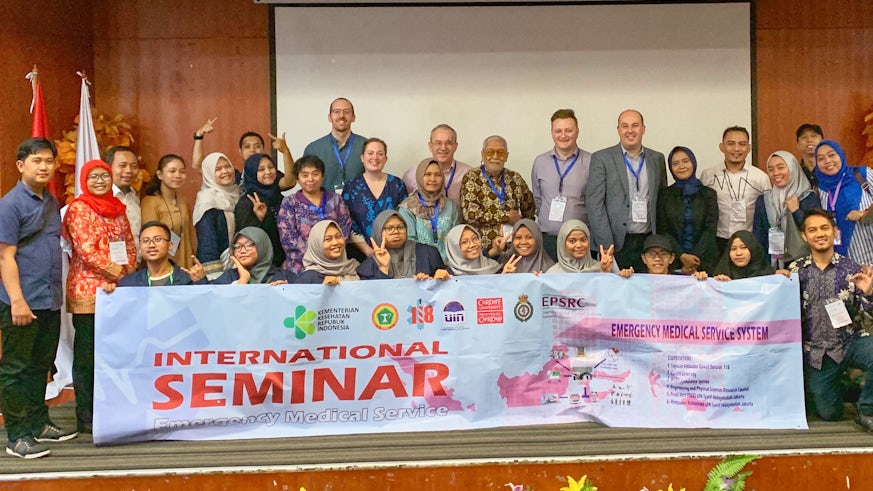Indonesian emergency medical services – Cardiff University researchers visit Jakarta
17 February 2020

In July we reported that “A team of researchers at Cardiff University’s School of Mathematics, including DIRI director, Paul Harper, were set to address the development challenges facing emergency medical services in Indonesia after securing £559k in funding.”
Last month (February) a research team, led by Paul Harper, visited Indonesia. The visit was part of the above mentioned project funded by EPSRC (for Mathematical Sciences and Global Challenges Research), and involved staff from Cardiff University, the Welsh Ambulance Service, and the University of Wisconsin-Madison.
Sarie Brice and Mark Tuson update us on the team's first visit and the project’s progress.
From day one the program was packed with activities. In Jakarta (the capital of Indonesia), members of the team met senior staff from the Ambulance Service 118 (the director Asti Puspitarini and the founder Prof Aryono Pusponegoro). The two parties exchanged information and knowledge about the emergency medical services in their respective countries. The two teams held a joint one-day workshop which was attended by over 170 people with doctors, nurses, paramedics, academics, and officials from the Indonesian Ministry of Health. The audience responded very well to the presentations and commented that the team had clearly opened their eyes to how mathematical modelling can be applied to healthcare challenges in their country.

During the workshop, Sarie, (who had been working with the 118 team in Indonesia for the past 6 weeks) presented results from one-month surveys of five Emergency Departments in Jakarta, this data was collected from the initial work of the funded grant, involving to-date 2,000 responses. Until now there has been no comprehensive understanding of demand for emergency medical services in Indonesia and how patients get to hospital given the lack of ambulance services. Mortality from trauma, heart attacks and stroke is particularly high in the country.
The next step in the project is to build spatial-temporal forecasts of demand across Jakarta (a city of 11 million inhabitants) followed by optimisation and simulation models to propose optimal capacity and location-allocation of ambulances (for different vehicle types such as ambulances and motorbike paramedics). Both demand and traffic congestion/travel times are highly time-dependent, that gives rise to particularly challenging and interesting queueing and stochastic optimisation models.
During the week-long visit, the team also visited several major hospitals and a disaster response organisation (for responding to earthquakes, tsunamis, terrorist events etc). Members of the team were welcomed by the directors of the hospitals and their staff. Following this visit, organisations and individuals are keen to establish further collaborations which can help improving their knowledge and systems. The intention is to now set up several MSc Data Science projects with our new Indonesian partners.